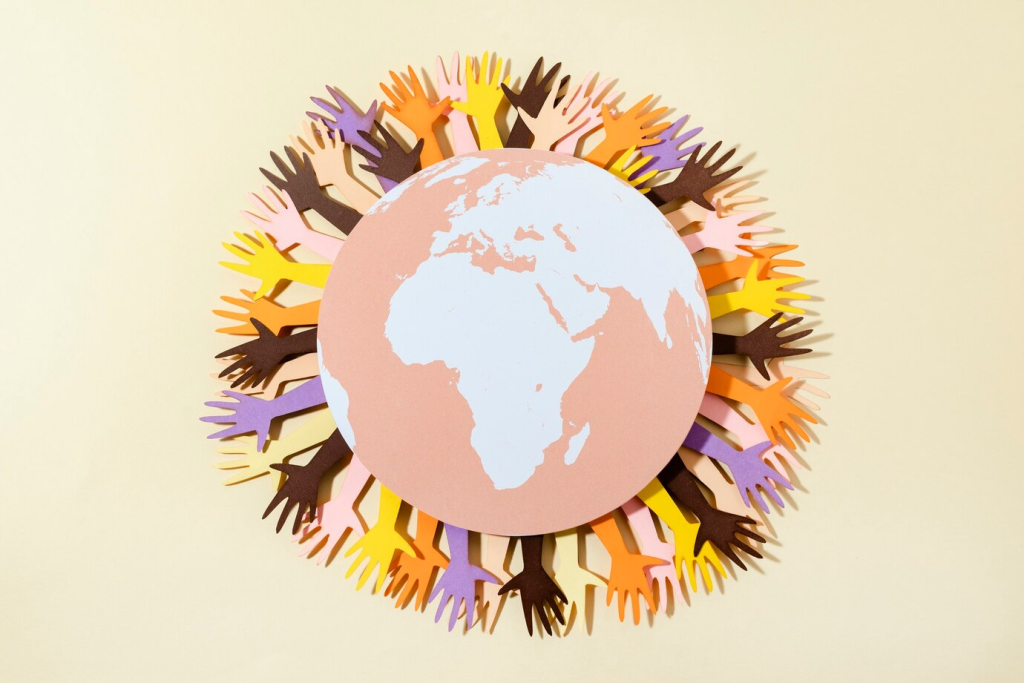
United Nations Day: Honoring the UN’s Role in Global Stability
In a world constantly grappling with pressing global challenges, the United Nations has remained a beacon of hope, unity, and stability since its inception in 1945. As we approach United Nations Day 2023, we are all called upon to reflect on the organization’s unwavering commitment to fostering peace, promoting human rights, and addressing the most urgent issues facing humanity.
United Nations Day, celebrated annually on October 24th, commemorates the UN Charter’s ratification, which paved the way for the organization’s establishment.
This day serves as a reminder of the UN’s vital role in addressing climate change, poverty eradication, gender equality, and promoting sustainable development worldwide.
History and Significance of United Nations Day
The establishment of the United Nations in 1945 was a direct response to the devastating consequences of World War II and the effects of the Cold War after WWll. With the primary responsibility of preventing future conflicts, such as an armed conflict and restore international peace and security, the UN Charter was signed by 50 countries, officially bringing the international organization back into existence. United Nations Day was then designated to honor the ratification of this charter.
United Nations Day holds immense significance as it highlights the collective efforts of nations toward their national interests and creating a more just and peaceful world. It serves as a reminder of the importance of diplomacy, sustainable peace, cooperation, demobilization and reintegration, and multilateralism in addressing global issues that transcend borders and affect everyone.
In addition to commemorating the achievements of the United Nations, United Nations Day serves as a reminder of the challenges that lie ahead. It calls for renewed mutual political commitment among member states to address global issues such as climate change, poverty, inequality, and armed conflicts. Individuals and organizations can build a more peaceful and prosperous world for future generations by supporting the UN’s mission and advocating for its reform and strengthening.
Permanent Five, a.k.a P5
One of the critical mechanisms for the maintenance of international peace and security is the UN Security Council. With its headquarters in New York City, the United Nations comprises fifteen member states, including five permanent members – China, France, Russia, the United Kingdom, and the United States. It can enforce sanctions, authorize the use of force, and establish peacekeeping operations and missions.
The Security Council’s decisions are binding on all UN member states, otherwise, the security council fails. This makes it a crucial body to maintain or restore international global stability.
How Does UN Maintain Global Peace and Security
The UN security council promotes global stability through its commitment to maintaining international peace and security through the United Nations peace operations. As an intergovernmental organization, the UN serves as a platform for dialogue and cooperation among its member states.
It provides a forum for nations to address conflicts and resolve disputes through peaceful means and work towards common goals. The United Nations’ efforts to maintain peace among the international community are guided by its founding principles and the provisions of the UN Charter.
United Nations Sustainable Development Goals (SDGs)
The United Nations’ commitment to global stability is further demonstrated through its Sustainable Development Goals (SDGs). In 2015, world leaders adopted the 17 SDGs as a blueprint for achieving a sustainable future by 2030. These goals encompass many issues, including poverty eradication, climate action, gender equality, and quality education.
The SDGs provide a comprehensive framework for governments, organizations, and individuals to work together towards a more equitable and sustainable world. Each goal is interconnected, emphasizing the need for integrated and holistic approaches to address our complex challenges.
Peacekeeping Efforts
Throughout its history, the UN peacekeeping operations has significantly contributed to global stability and in maintaining peace and order. One of its most notable achievements is its peacekeeping efforts. The UN peacekeeping missions to conflict zones worldwide, working tirelessly to mediate disputes, protect civilians, and stabilize volatile regions.
Promoting Human Rights and Social Justice Worldwide
One of the primary objectives of the United Nations is to promote and protect human rights and social justice on a global scale. Through various specialized agencies and programs, the UN ensures that fundamental rights and freedoms are upheld for all individuals, regardless of nationality, ethnicity, or gender. The Universal Declaration of Human Rights, adopted by the UN General Assembly in 1948, serves as a guiding document.
The United Nations monitors member states’ implementation of human rights obligations through its human rights mechanisms. It provides technical assistance in building capacities to protect and promote human rights. Additionally, the UN has established international tribunals and courts to hold individuals accountable for serious human rights abuses and war crimes. By actively engaging with civil society organizations and promoting inclusive participation, the UN creates avenues for individuals to voice their concerns and contribute to advancing human rights globally.
Collaborating with Member States and International Organizations
The United Nations recognizes that addressing global challenges requires collaboration and cooperation among member states and international organizations. The UN strives to achieve its peace, development, and human rights goals through partnerships with governments, non-governmental organizations (NGOs), and other stakeholders. Member states contribute financially to the UN’s operations and participate in decision-making processes through various UN bodies.
Moreover, the United Nations system encompasses various specialized agencies, programs, and funds that work together to address complex global issues. These include the World Health Organization (WHO), the United Nations Educational, Scientific and Cultural Organization (UNESCO), and the United Nations Children’s Fund (UNICEF), among many others. By leveraging the expertise and resources of these entities, the UN can tackle a diverse array of challenges, from poverty and climate change to education and public health.
Conclusion
As we commemorate United Nations Day 2023, it is essential to reflect on the significance of global stability and the indispensable role played by the United Nations in achieving it. The UN’s commitment to maintain international peace, promote human rights, renew mutual political commitment, and address global challenges remains as crucial as ever.
The United Nations is a beacon of hope in a world facing unprecedented crises, offering a platform for collaboration, dialogue preventive diplomacy, and collective action. Through our collaborative efforts, both as nations and individuals, we can build a future of peace, prosperity, and equality for all.
On this United Nations Day, let us reaffirm our commitment to supporting the UN’s mission and working together towards a better world. By honoring the UN’s achievements and contributions, we acknowledge the power of international cooperation and the potential for positive change. Together, we can create a world where global stability is not just a dream but a reality.

Check out our House and Lot for Sale Properties
Discover our house and lot for sale properties in the Philippines


